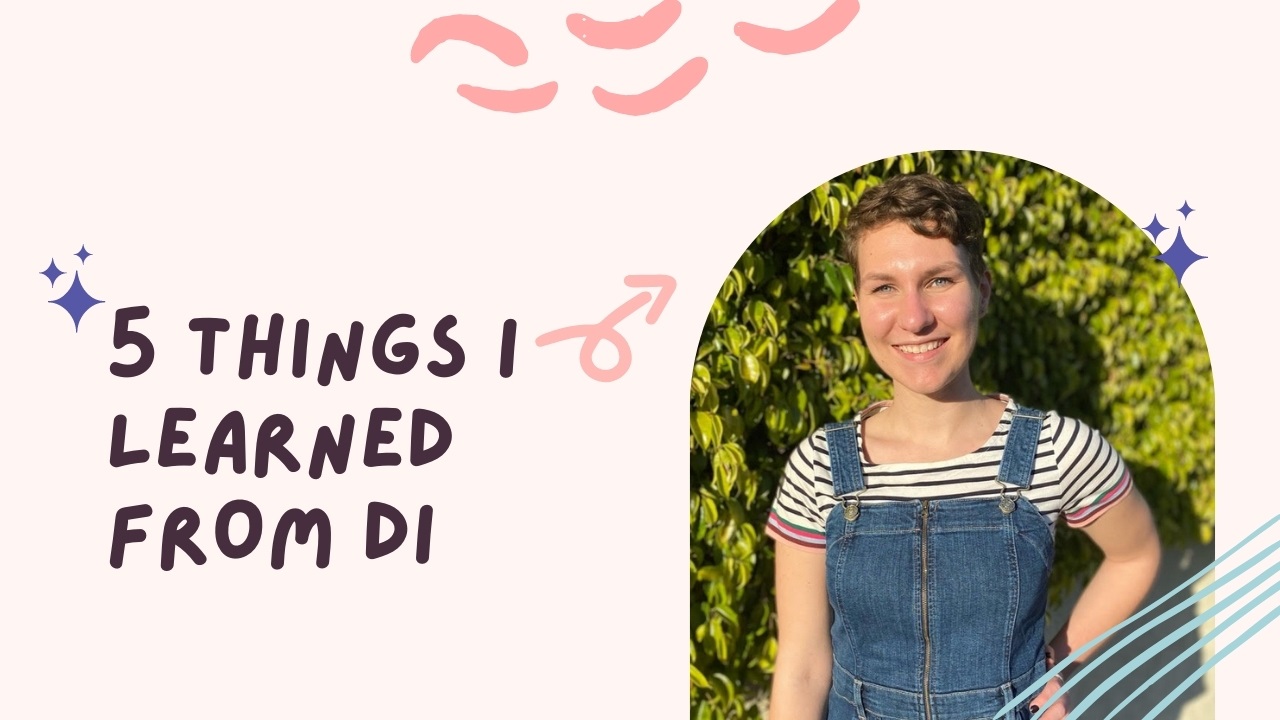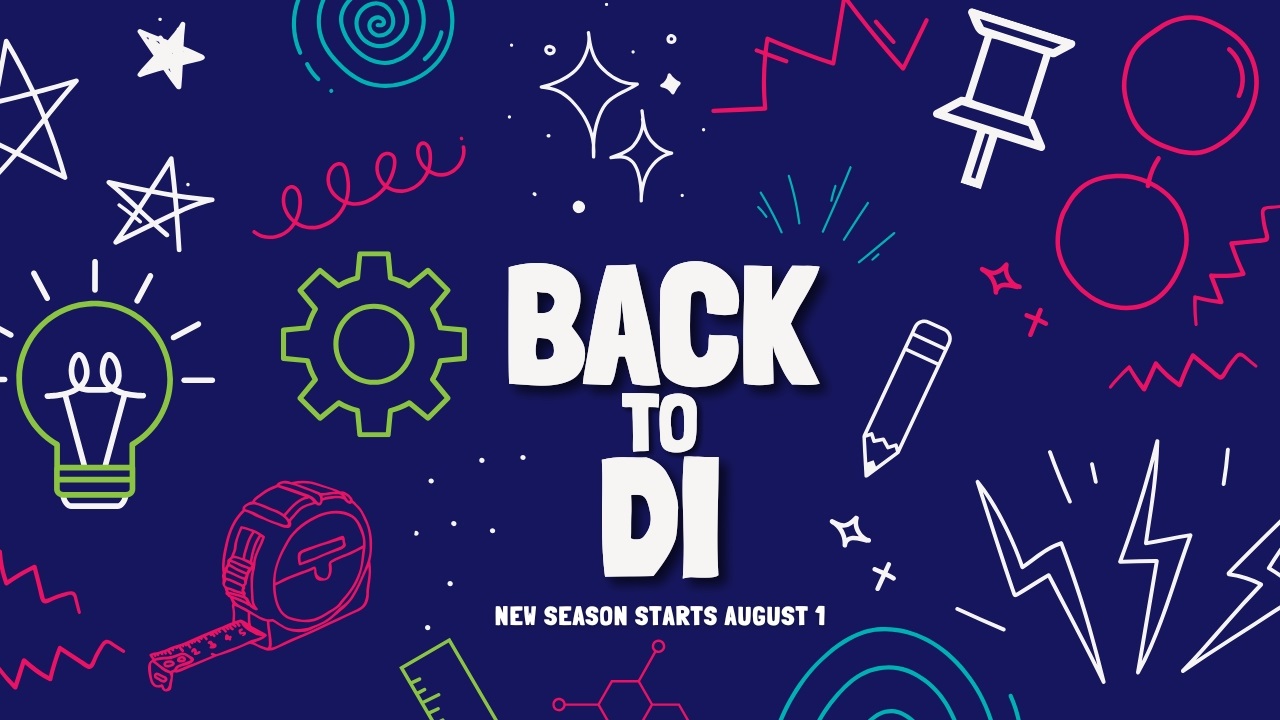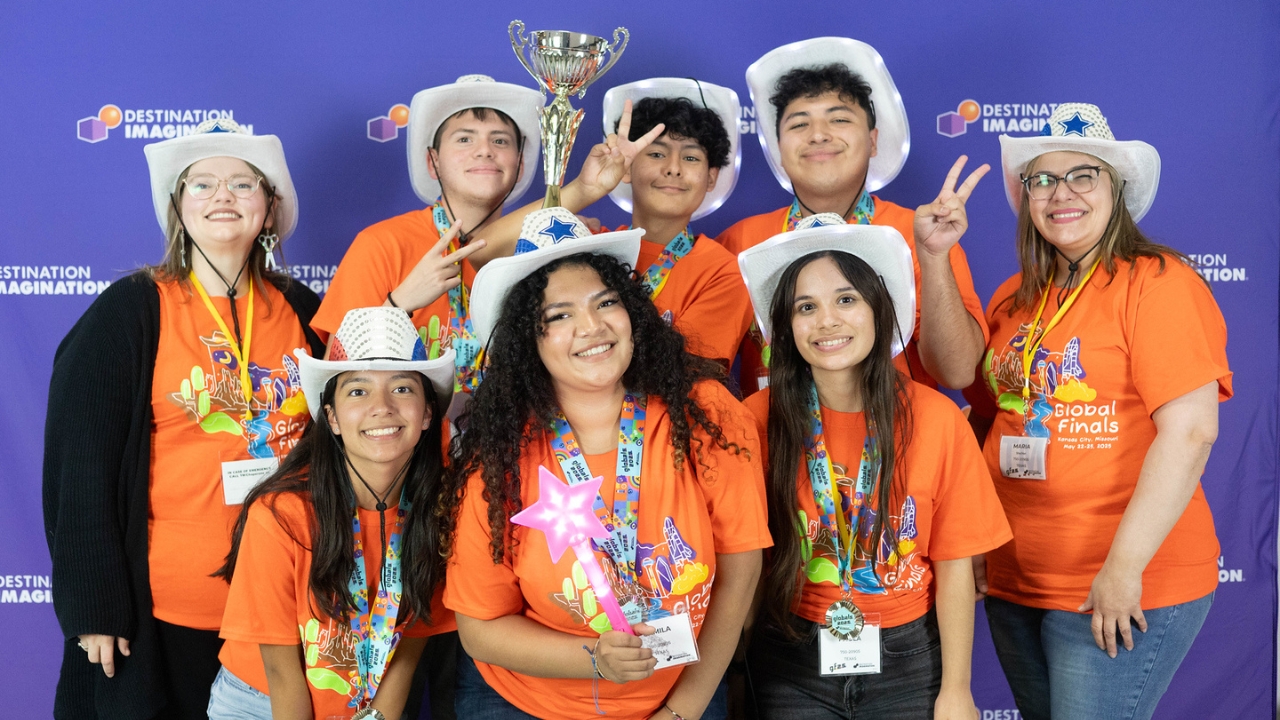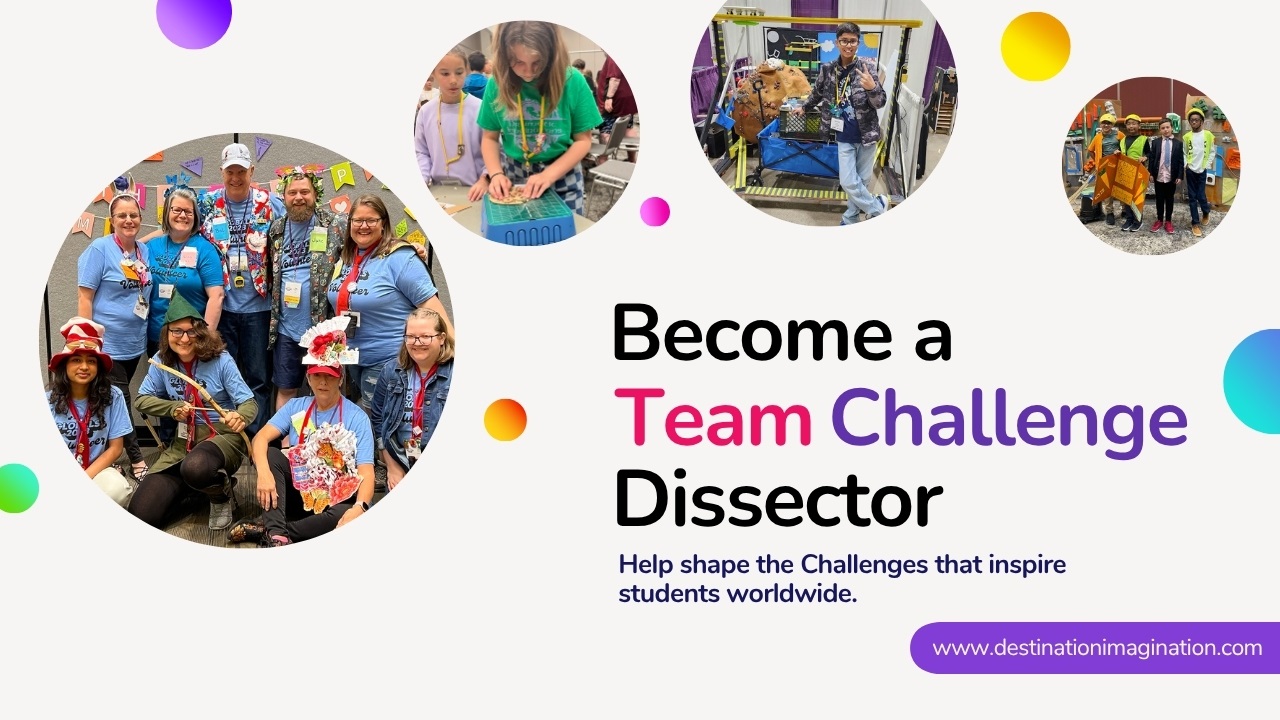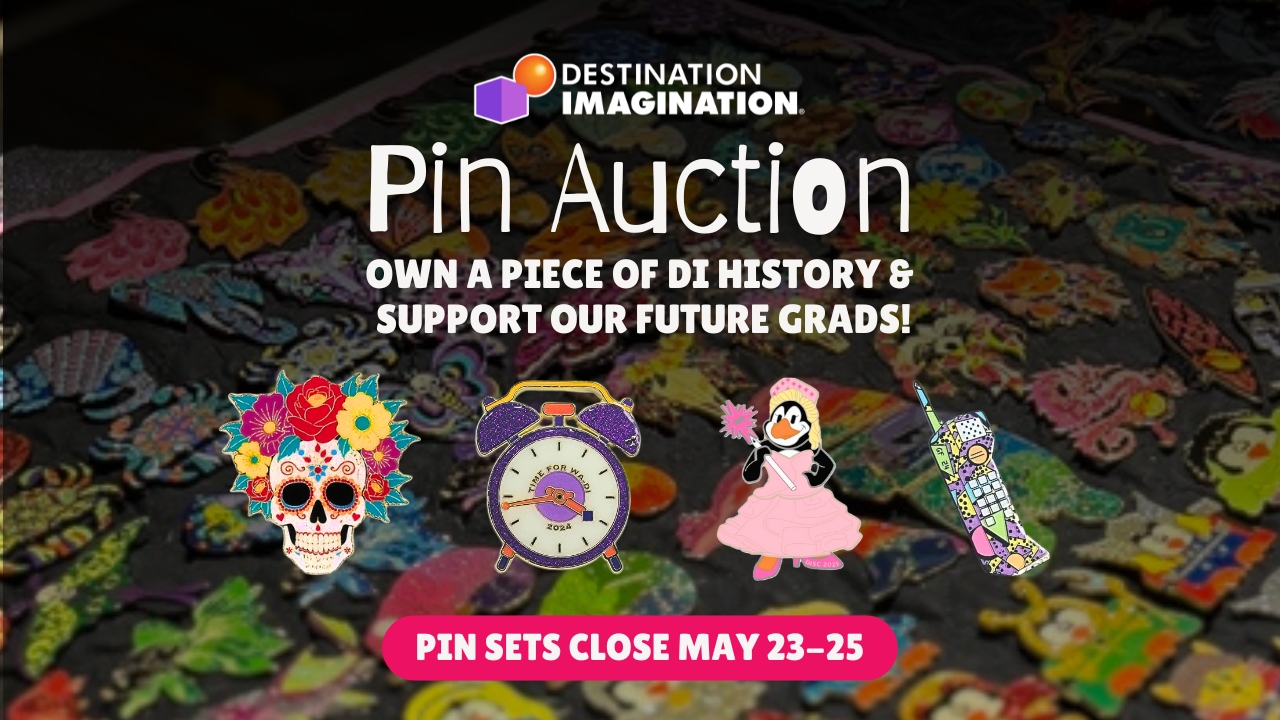Earlier this year, I was fortunate to be the Customer Service/Affiliate Relations Intern at Destination Imagination (DI). I’m also a DI alumni (I was part of a team of my own for seven years!). Working with the staff at DI and seeing this organization from the other side has given me an entirely new perspective on the program. It’s also given me a space to reflect on some of the most meaningful lessons I took away from my own time in DI.
There are a few things I often see discussed in conversations about the benefits of DI—namely creativity and collaboration. DI gave me the freedom to unlock my creativity and the tools to perfect my ability to collaborate. But I want to talk about some of the other incredible things I learned from DI. Here are five of the more understated lessons Destination Imagination taught me that have greatly improved my life, even many years after being on a team.
1. I learned how to lose with grace.
I didn’t do sports in elementary and middle school, and Destination Imagination was my first real exposure to competition. My Affiliate Tournament in fifth grade was the first time my team stayed until Closing Ceremonies to listen to the results. This was the second year in a row that we had made it to the state level, and thanks to our top scores at our Regional Tournament, we were feeling pretty good about our chances for Globals. We worked so hard on our solution. How could that not be recognized?
Well, we did not get to Globals that year, or the year after, and it was the first time I remember putting my all into something and still not getting the results I wanted. It took me a long time to stop feeling disappointed in myself and in my team. I can look back now and see that DI was a valuable experience for me, whether I won or not, but at the time, that was too big of a lesson for me to grasp. As a child, I mostly just knew that I had lost, that the world had kept turning, and that I would be okay. Learning that my value as a person wasn’t determined by my tournament results allowed me to face rejection as an adult without it hurting my self image and is a crucial lesson for any child to have.
2. I learned how to build things.
As an elementary schooler, most of my friends didn’t know how to use a saw. But I did – I had used a saw to cut down a huge piece of cardboard to be a backdrop for one of my DI plays, under careful supervision from my team manager. By the time I was in high school, I had built huge structures out of PVC pipes, fabric, and duct tape. I knew how long to let paint dry between coats, and that the answer was different for cardboard and wood. I could use a drill, assemble a pulley system, and wield a hot glue gun like a champ. Many of my peers didn’t know their way around building materials and power tools, but through DI, I’d had a reason to try almost everything at least once.
I don’t have a job that relies on me being handy, and it’s likely that I never will. But that doesn’t mean these practical skills aren’t important to my success in general life. I can assemble furniture with the best of them, and more importantly, if I’m missing tools or something is broken, I have the know-how to find my way around it. I also have the self-confidence to learn new skills – anything from caulking a wall to engraving glass. By teaching me how to work with my hands, DI gave me unexpected freedom to do things myself, which is something anyone could benefit from.
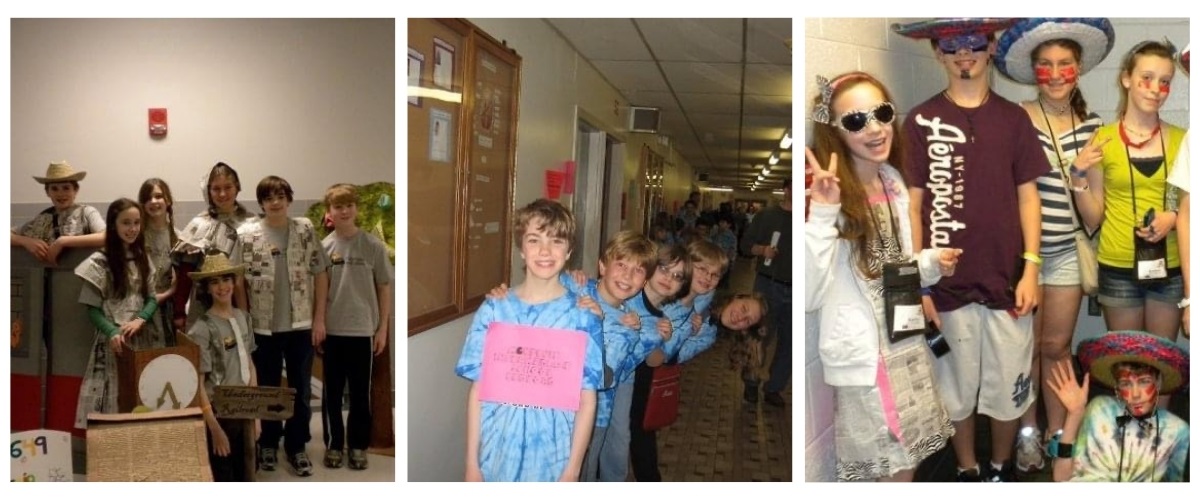
3. I learned how to apologize.
Destination Imagination by necessity involves working closely with people who are very different from you. It can also be an emotionally intense experience—at least on my team, arguments were frequent, especially right before competition. None of this was helped by the fact that we were all going through puberty, and every emotion felt impossibly close to the surface. For many years, my teammates were the only people outside of my immediate family who had seen me cry.
At first, our Team Manager focused on stopping conflicts before they started. It should have been easy because after all, we all cared a lot about each other and didn’t want to fight! But with tensions running high in the final days leading up to the competitions, this sometimes proved impossible. Instead, my team focused on perfecting our sincere apologies. If one of us realized we had hurt one of our teammates, we would go into another room for a few minutes to cool down. Then we would come back ready to actually mend the relationship, instead of just apologizing to smooth things over. This wasn’t always an immediate fix, depending on how serious the conflict was, but it was a first step. Many adults still struggle to take responsibility for their actions, and the lessons DI taught me about the benefits of an earnest and vulnerable apology have continued to make my relationships stronger even as an adult.
4. I learned how to prioritize my time.
By the time my team was in middle school, Destination Imagination had become one of the more time-consuming parts of my life. Coordinating meetings between seven busy thirteen-year-olds wasn’t easy, especially since most of us had activities during the week that made weekday meetings difficult. Family commitments over the weekend meant that typically, Friday nights were the best night for all of us to meet. Unfortunately, that meant we often had to choose between DI meetings and social plans. I have a distinct memory of all seven of us agreeing to skip a school dance in seventh grade to finalize details before the Affiliate Tournament. That sacrifice ended up paying off, and that was the first year we got to Globals.
I have another memory of trying to attend a DI meeting a few days after getting my wisdom teeth out, and my mom telling me not to. At the time I was upset – I thought I might hurt my team by missing the meeting, even though I was in pain and could hardly talk. I didn’t understand the difference between skipping a school dance to attend a meeting and pushing through after a surgery. Now though, I’m thankful for those lessons. DI was something I cared about, so it was okay for me to sacrifice a social plan like a school dance. However, that doesn’t mean it’s okay for me to sacrifice my health. Learning that something could be a priority of mine without being my ultimate priority has been key to balancing my life as an adult.
5. I learned how to perform under pressure.
Before joining Destination Imagination, I remember starting to shake whenever I was under time pressure—like during the timed multiplication tests often administered in elementary school. No matter how many times I practiced my multiplication tables and how sure I was that I knew every single one by heart, as soon as it was time to take the test, I found myself unable to remember a single one.
Destination Imagination, and specifically the Instant Challenge, completely changed that. If I could build a freestanding tower or write a catchy jingle in two minutes, with my team’s scores riding on my performance, of course, I could fill out my multiplication tables. Like any other skill, staying cool under time pressure just took practice. When I was younger, all the practice Instant Challenge had given me with coming up with quick, accurate answers mostly helped me on things like tests. But now that I’m older, I use the tricks DI taught me to stay calm under pressure constantly in the workplace and find solutions that my coworkers are sometimes too wound up to see.
It’s been years since I was on a team of my own, but I still carry with me the lessons that DI taught me. Destination Imagination made me a better person and gave me more success in my career, relationships, and general life. I continue to be thankful for these powerful lessons, and they continue to improve my life.
